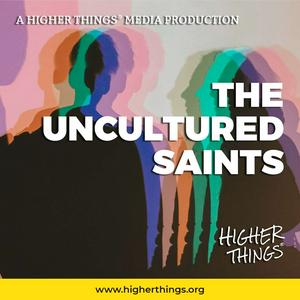Jesus Prays, Judas Betrays & a Naked Man Runs
📖Mark 14:32-52➡️ Jesus Prays in GethsemaneIn the Garden of Gethsemane, Jesus prays with deep sorrow. “Abba, Father,” He pleads, “remove this cup from me.” It’s a window into His full humanity. Jesus knows what’s coming: not just the nails and thorns, but the full wrath of God. He’ll be abandoned, crushed under judgment meant for us. It shows that we too are allowed to bring our fears to God. And yet, Jesus finishes with, “Not what I will, but what You will.” Meanwhile, His disciples can’t stay awake. This isn’t just sleepiness—it may be despair. Their bodies shut down under the weight of grief and fear. Jesus tells them, “The spirit is willing, but the flesh is weak.” ➡️ Jesus is Betrayed and ArrestedThen comes Judas. The Uncultured Saints wrestle with what’s really going on with Judas. Was it greed? Despair? Misguided hope? Did he think Jesus would escape again and this was just a push? He calls Jesus “Rabbi,” not “Lord” — a hint he still didn’t truly see who Jesus was. The kiss, a sign of peace, becomes a signal of betrayal. Whether his intentions were confused or malicious, the outcome was the same.Judas’ betrayal triggers the arrest, yet Jesus remains in control, willingly surrendering to fulfill His mission.➡️ A Naked Man FleesMark describes a young man following Jesus, wearing nothing but a linen cloth. When the crowd grabs him, he escapes by slipping out of the cloth and runs away naked.Many believe this was Mark himself, quietly placing his own story in the margins. A confession of fear, maybe shame — but also a witness. He was there. He saw it. And even though he ran, he still wrote it down.Because that’s the point: Jesus didn’t run. He faced the cross — for them, for Judas, for Mark, for us.Contributor Rev. Harrison Goodman is the Higher Things Executive Director of Missions and Theology.Contributor Eli Lietzau is the pastor at Wheat Ridge Evangelical Lutheran Church in Wheat Ridge, CO.#higherthings #lcms #lutheran #jesus


